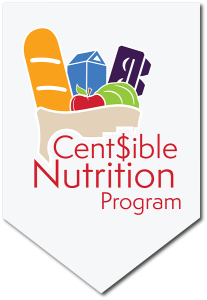October is Eat Better, Eat Together month. Eating together as a family is good for kids for many reasons. Kids who eat regular meals with their families are more likely to eat healthier foods, like fruits and vegetables. Kids also do better in school and are more likely to make good decisions when they eat meals with their family. Finding the time to make family meals happen can be a challenge, however. Here are our tips for making family meals easy.
Top 5 Tips for Making Family Meals Happen
- Start with 1 meal a week. If your schedule is hectic, try to find one meal a week where everyone can be together. Keep in mind that your family meal could be breakfast, lunch, or dinner. Mark the dates on the calendar. As family meals become a habit, aim to add a few more family meals during the week.
- Be flexible. Eating together at home isn’t always possible, but that doesn’t mean that you can’t still have a family meal. If you’re having a meal on the go, aim to take just a few minutes to sit together and enjoy it.
- Cook it together. Make meal time family time, beginning with preparing themeal. Kids of all ages can help in the kitchen and cooking together can be a time to try new foods, talk, and connect.
- Make it fun. Keep the conversation light. Pick a new recipe to try, if you’re feeling adventurous, or keep the meal simple. Let kids help plan the meal ahead of time so they are excited to help make and eat it. Think about changing the meals up, like breakfast for dinner, to add a little excitement to the meal.
- Make it easy. Family meal time does not have to be complicated. It is a good idea to include several food groups in your meal, but keep it simple. A salad or fruit makes an easy side dish that can help round out a meal. Prep ingredients ahead of time, if possible, or use a crockpot to start dinner before hand. Think about using your freezer to keep easy meals, such as soups, lasagna, and casseroles on hand for fast family meals.
Get Family Mealtime Conversations Started
Use our 31 CNP conversation cards to start the family conversation.
Download the cards here!
Laugh together, talk together, learn together.
Click Here
References
- Benefits of Family Dinners (The Family Dinner Project)
- No More Mealtime Madness (Cooking Matters)
- Eating Healthy (Kids Health from Nemours)
Menu


